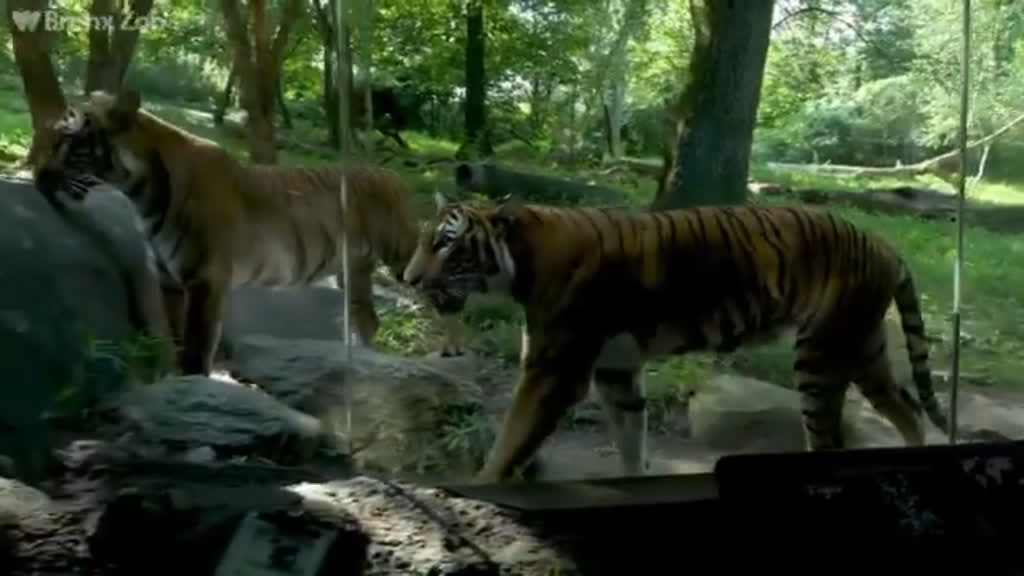A tiger at the Bronx Zoo in New York City has tested positive for the coronavirus, while several other animals are being monitored for similar symptoms.
In a press release, the Wildlife Conservation Society (WCS), which operates the zoo, said that the animals were likely infected by an asymptomatic carrier of the disease. It’s the first known case of the virus being detected in an animal in the U.S. as well as the first confirmed case in a tiger anywhere in the world.
“Nadia, a 4-year-old female Malayan tiger at the Bronx Zoo, has tested positive for COVID-19. She, her sister Azul, two Amur tigers, and three African lions had developed a dry cough and all are expected to recover,” the WCS said in a statement.
“Our cats were infected by a person caring for them who was asymptomatically infected with the virus or before that person developed symptoms,” the statement continued.
Officials with the U.S. Department of Agriculture confirmed the news in its own press release, adding that it was the first known case of the disease affecting a tiger in the world.
“The United States Department of Agriculture’s (USDA) National Veterinary Services Laboratories has confirmed SARS-CoV-2 (the virus that causes COVID-19 in humans) in one tiger at a zoo in New York. This is the first instance of a tiger being infected with COVID-19. Samples from this tiger were taken and tested after several lions and tigers at the zoo showed symptoms of respiratory illness,” said the USDA’s release.
“Public health officials believe these large cats became sick after being exposed to a zoo employee who was actively shedding virus. The zoo has been closed to the public since mid-March, and the first tiger began showing signs of sickness on March 27. All of these large cats are expected to recover,” the release continued.
New York state is home to the most cases of the coronavirus in the U.S., with more than 122,000 cases confirmed in the state and a death toll that has passed 4,100.
The zoo is currently closed under a statewide order shuttering nonessential businesses and public spaces, though many zookeepers remain at work to care for the animals.
In the zoo’s press release, officials stressed that animals were not thought to be able to transmit the disease to humans other than the initial incident at a wet market in Wuhan, China, where the coronavirus is thought to have originated.
“COVID-19 is a disease caused by the coronavirus known as SARS-CoV-2. It is believed that the virus was first transferred to people at a food market that trades in wildlife in Wuhan, China,” read the release.
“There is no evidence that animals play a role in the transmission of COVID-19 to people other than the initial event in the Wuhan market, and no evidence that any person has been infected with COVID-19 in the US by animals, including by pet dogs or cats,” zoo officials added.




